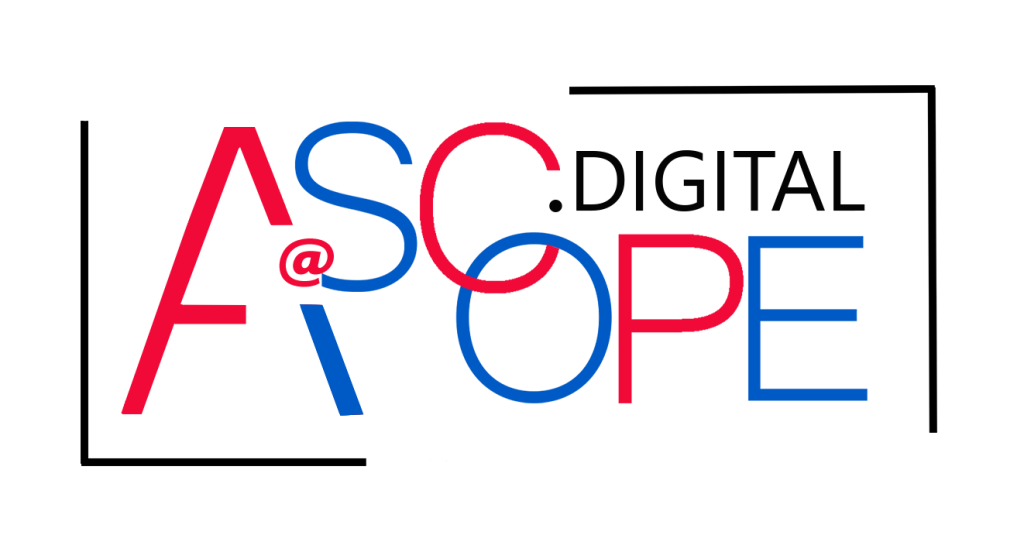
The future of SEO is poised for dramatic shifts, driven by emerging technologies and evolving user behaviors. As businesses continue to navigate the digital landscape, understanding the pivotal trends shaping the SEO world is crucial. From AI-powered automation to the growing role of voice search, the future of SEO will be defined by innovations that streamline optimization processes, enhance user experiences, and introduce new ways of connecting with audiences. As we explore these shifts, it’s evident that SEO will not just be about keywords but about how well content resonates with users and adapts to the technologies driving search.
The Rise of AI and Automation in SEO

As we look towards the future of SEO, one of the most significant trends shaping the landscape is the rise of AI and automation. By 2030, we can expect these technologies to play an even more pivotal role in how search engines rank content and how businesses optimize their websites.
AI tools, such as chatbots, content generation software, and automated SEO audits, are already making waves in digital marketing. By 2030, these tools will be more advanced, capable of performing tasks that once required human intervention. For instance, AI-driven content creation platforms can generate high-quality text that mimics the tone and style of human writers, saving businesses time and effort. With enhanced machine learning algorithms, search engines will be better equipped to understand user intent, context, and the nuances of natural language, making keyword stuffing a thing of the past. This will ensure that the future of SEO is more about content relevance and user engagement than ever before.
Automated SEO audits, powered by AI, will become essential for businesses looking to stay competitive. These tools will analyze websites in real-time, providing detailed insights on areas that need improvement, such as site speed, mobile-friendliness, and backlink profiles. With automation, website optimization will be more efficient, helping businesses respond to SEO trends swiftly and remain ahead of the curve. Machine learning algorithms will also continuously adapt to new ranking factors, ensuring that SEO strategies are constantly refined.
Perhaps the most exciting development in the future of SEO will be how AI and automation enable a more personalized search experience. As AI learns more about individual preferences and behaviors, search engines will tailor results to fit the needs of each user. This personalized approach will go beyond basic search queries, providing answers, recommendations, and content suggestions based on a user’s specific history, location, and interests. For businesses, this means that SEO strategies will need to focus not only on keywords but also on creating personalized, relevant content that resonates with their target audience.
Voice Search Optimization and Conversational AI

As we move towards the future of SEO, voice search technology is set to become an even more integral part of the digital landscape. With the rapid growth of smart devices and virtual assistants such as Siri, Alexa, and Google Assistant, voice search will dominate the way people interact with search engines. By 2030, businesses and SEO professionals will need to adapt their strategies to accommodate this shift in user behavior.
Currently, voice search is already a significant part of everyday life, especially with the rise of smart speakers and mobile devices. As these technologies improve, voice search will continue to evolve, becoming more conversational and context-aware. This transformation will have major implications for the future of SEO, particularly in how content is created and optimized.
One of the biggest changes will be the need for more natural, conversational content. When users search via voice, they tend to phrase queries in a more natural way, often using complete sentences or questions like “What’s the best Italian restaurant near me?” or “How do I fix my leaky faucet?” Unlike traditional text-based searches, voice searches are typically longer and more specific. This shift will require businesses to rethink their keyword strategies. Rather than focusing solely on short-tail keywords, optimizing for long-tail keywords and question-based queries will become essential to cater to the future of SEO.
Another challenge for SEO in the future will be ensuring content is optimized for the increasing use of featured snippets. Voice search results often pull from these snippets, providing direct, concise answers to users’ questions. To rank in this prime position, businesses will need to structure their content to answer specific questions in a clear and straightforward manner. This means creating content that not only addresses user queries but does so with the intent of being featured in voice search results.
Furthermore, conversational AI will play a key role in shaping the future of SEO. As AI-powered virtual assistants become smarter, they will be able to understand complex queries, context, and user preferences, offering more personalized search results. This will push businesses to focus on providing highly relevant, personalized content that caters to the specific needs of their audience.
User Experience (UX) and Core Web Vitals as Ranking Factors

As we look toward the future of SEO, one of the most significant trends will be the increasing importance of User Experience (UX) and Core Web Vitals in search engine ranking factors. Over the past few years, search engines like Google have shifted their focus from just the content of a page to how users interact with that content. By 2030, we can expect this trend to continue, with UX playing a central role in shaping SEO strategies and driving organic traffic.
Core Web Vitals, a set of metrics that evaluate the loading performance, interactivity, and visual stability of a webpage, have already become important ranking factors in SEO. These metrics—specifically Largest Contentful Paint (LCP), First Input Delay (FID), and Cumulative Layout Shift (CLS)—are key indicators of how well users experience a website. The future of SEO will see these factors becoming even more critical, as search engines increasingly prioritize delivering a seamless, engaging experience to users.
Page speed will remain one of the most important UX factors influencing search rankings. As technology improves and users expect faster websites, search engines will continue to penalize slow-loading pages. This means that businesses must optimize their websites to load quickly on all devices, ensuring a smooth experience for their audience. In the future of SEO, a fast, responsive website will no longer be optional—it will be essential for maintaining high rankings in search results.
Mobile-friendliness will also become even more crucial as mobile traffic continues to grow. By 2030, more people will access the internet via mobile devices than ever before. As a result, search engines will increasingly prioritize mobile-optimized websites that provide a consistent, enjoyable experience across devices. Websites that fail to optimize for mobile users will struggle to maintain visibility in search engine results, making mobile optimization a core part of any future SEO strategy.
Additionally, interactive features such as chatbots, video content, and personalized recommendations will play a more significant role in SEO. Engaging users with interactive elements can increase time on site and reduce bounce rates, both of which are positive signals to search engines. The future of SEO will require businesses to not only focus on content quality but also on creating dynamic, interactive user experiences that keep visitors engaged.
The Role of Video Content and Visual Search in SEO

As we look toward the future of SEO, the role of video content and visual search technologies will continue to expand, shaping how businesses approach digital marketing and content optimization. Platforms like YouTube, TikTok, and Instagram are already driving significant amounts of traffic and engagement, and this trend is expected to intensify by 2030. Video content will not only be crucial for user engagement but will also play a larger role in search engine rankings and SEO strategies.
Video content, particularly short-form videos on platforms like TikTok and Instagram, is already proving to be a powerful tool for attracting and engaging audiences. With their increasing popularity, search engines are adapting to prioritize these types of content. The future of SEO will see an even greater emphasis on optimizing videos to ensure they appear in search results. This means that businesses will need to focus on creating high-quality, shareable videos with relevant keywords, engaging descriptions, and optimized metadata. Video SEO will become as important as traditional SEO, requiring businesses to apply strategies that enhance visibility and improve rankings.
Another critical development in the future of SEO is the rise of visual search technologies. Users are no longer limited to searching with text-based queries. As image recognition technology advances, search engines will enable users to search using images, augmented reality (AR), and even videos. For example, platforms like Google Lens already allow users to snap a photo of an object and instantly retrieve relevant search results. By 2030, this technology will be more refined and widely adopted, leading to a shift in SEO tactics.
For businesses, this means optimizing images, videos, and AR-based content to ensure they are discoverable in search results. Instead of simply focusing on written content and keywords, SEO strategies will have to incorporate visual elements, ensuring that images and videos are tagged, described, and categorized for optimal searchability. As visual search continues to grow, companies will need to invest in creating high-quality, visually appealing content that can be easily recognized and indexed by search engines.
The Impact of Blockchain and Privacy Laws on SEO

As we look ahead to the future of SEO, two critical factors will influence how businesses approach search engine optimization: privacy regulations and blockchain technology. With the increasing focus on data privacy and transparency, the impact of these developments will likely reshape SEO practices and strategies by 2030. Understanding these forces will be key for businesses looking to maintain competitiveness and trust in the evolving digital landscape.
The introduction of privacy regulations like the General Data Protection Regulation (GDPR) and the California Consumer Privacy Act (CCPA) has already started influencing SEO practices. These laws have placed a greater emphasis on protecting user data, giving consumers more control over how their personal information is used. By 2030, privacy laws are expected to become even more stringent, with governments around the world implementing similar measures to safeguard online privacy. For businesses, this means that SEO strategies must evolve to respect user privacy while still delivering relevant, personalized content.
One of the key implications of these privacy regulations is how data is collected, stored, and used for targeting and advertising. Traditional SEO tactics, such as using user behavior and personal data for targeted advertising, may face limitations in the future of SEO due to privacy concerns. Businesses will need to adapt by focusing on first-party data—data collected directly from users with their consent—rather than relying on third-party cookies and tracking methods that are increasingly under scrutiny. This shift will require new strategies for collecting, managing, and utilizing customer data while ensuring full compliance with privacy laws.
On the other hand, blockchain technology holds the potential to revolutionize the future of SEO by enhancing transparency and trust in digital transactions. Blockchain, which provides a decentralized and immutable ledger, can ensure the authenticity and integrity of digital content, including the source of backlinks, ad clicks, and other SEO-related data. In this new era, blockchain could help combat issues like click fraud, fake reviews, and misleading backlink practices, providing businesses with more accurate insights into their SEO performance. Moreover, blockchain could introduce new methods for verifying content and source credibility, leading to a more transparent search result environment.
Conclusion
As we look towards the future of SEO, staying updated with the latest trends and best practices is essential for businesses aiming to maintain a competitive edge. One valuable resource for deepening your understanding of SEO strategies is Moz’s SEO Guide, which provides in-depth information on the fundamentals and advanced techniques that will shape SEO in the coming years. As search engines continue to evolve, platforms like Moz can help businesses stay ahead by offering expert advice on optimizing content, improving rankings, and leveraging the newest tools in the digital marketing space.
In conclusion, the future of SEO will undoubtedly be shaped by advancements in AI, voice search, user experience optimization, visual content, and emerging technologies like blockchain. As search engines become smarter and more personalized, businesses must adapt their strategies to meet these new challenges. To stay competitive, focusing on providing high-quality, relevant content, optimizing for new forms of search, and ensuring compliance with privacy regulations will be crucial. By embracing these changes, companies can effectively navigate the evolving SEO landscape and continue to attract, engage, and convert their target audience.
For more details or to discuss your specific SEO requirements, visit our Onsite SEO Services page.

